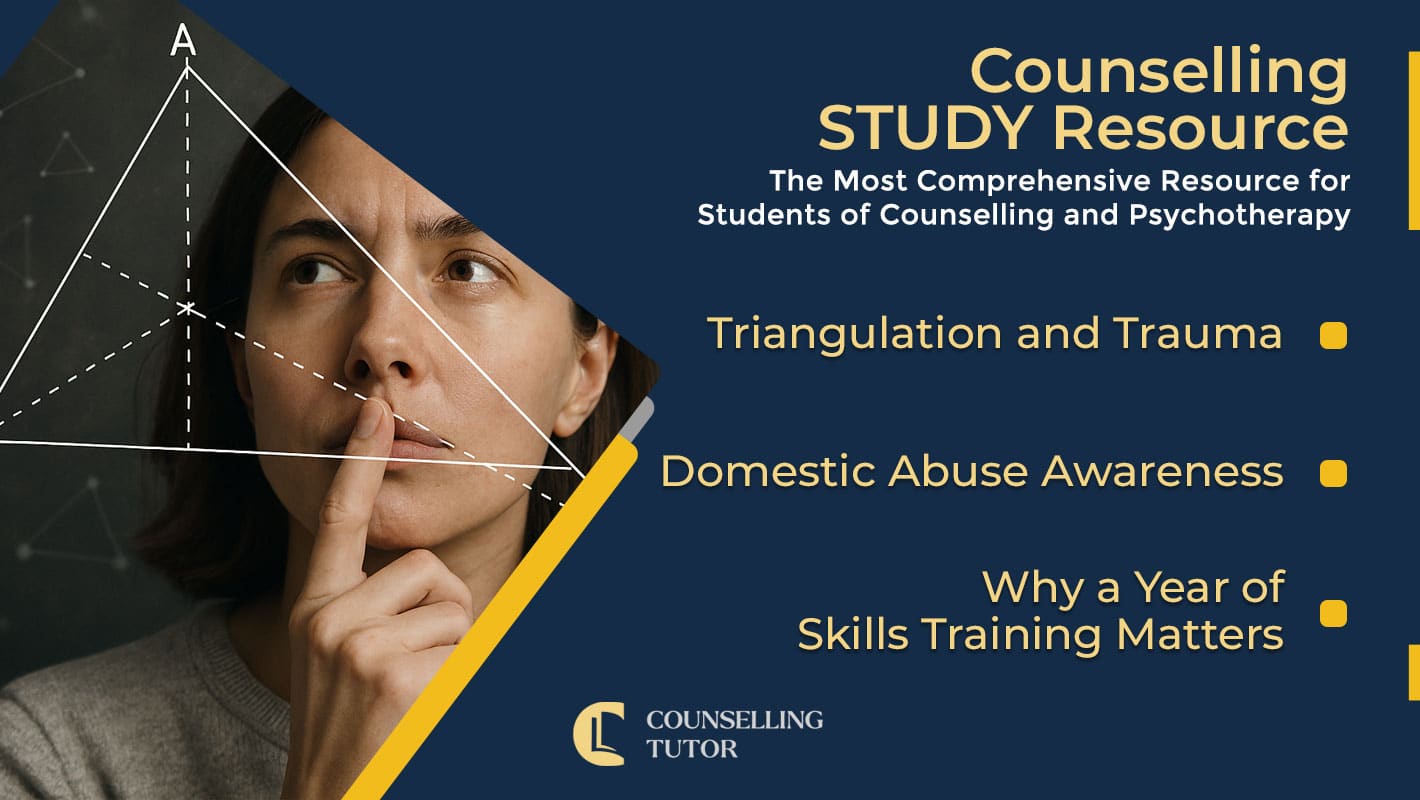See Counselling Skills Used in Real Sessions by Qualified Therapist
Real Sessions – Real Presentations – Real Skills
Gain the competence and confidence to use counselling techniques effectively!

In Episode 346 of the Counselling Tutor Podcast, your hosts Rory Lees-Oakes and Ken Kelly take us through this week’s three topics:
Firstly, in ‘Ethical, Sustainable Practice’, they explore trauma-informed practice, focusing specifically on triangulation and trauma — how this hidden dynamic shows up in therapy and why recognising it is vital for working safely and effectively with clients.
Then in ‘Practice Matters’, Rory speaks with Mel Ciavucco, a counsellor, trainer, and specialist in domestic abuse, about her new CPD lecture, Domestic Abuse Awareness. They discuss working with both survivors and perpetrators, how coercive control operates, and the importance of understanding abuse through an intersectional lens.
And finally, in ‘Student Services’, Rory and Ken explore why formal counselling training includes a full year focused entirely on counselling skills. They explain how these foundational skills form the bedrock of all therapeutic work and how they support students in becoming confident, competent practitioners.
In this section, Rory and Ken explore triangulation and trauma, highlighting how this relational dynamic is often rooted in childhood experiences.
Key points discussed include:

Real Sessions – Real Presentations – Real Skills
Gain the competence and confidence to use counselling techniques effectively!
In this week’s ‘Practice Matters’, Rory speaks with Mel Ciavucco, who draws from years of experience working with domestic abuse survivors and perpetrators.
Key points from this conversation include:

On-demand access to a rich lecture library covering theory, skills, and professional development for counselling students—Mapped to the UK awarding body criteria
“The Student Library has been BRILLIANT, I can’t recommend it enough!
It has been a lifeline in helping me prepare for practice and my first clients. If you’re considering it, go-for-it, it’s absolutely worth it!”
Kelly – Graduated and now in practice.
In this section, Rory and Ken explain the rationale behind dedicating an entire year of counselling training to developing core counselling skills.
Key points include:
Triangulation and Trauma

Get on-demand Certified CPD that is implementable in your practice
